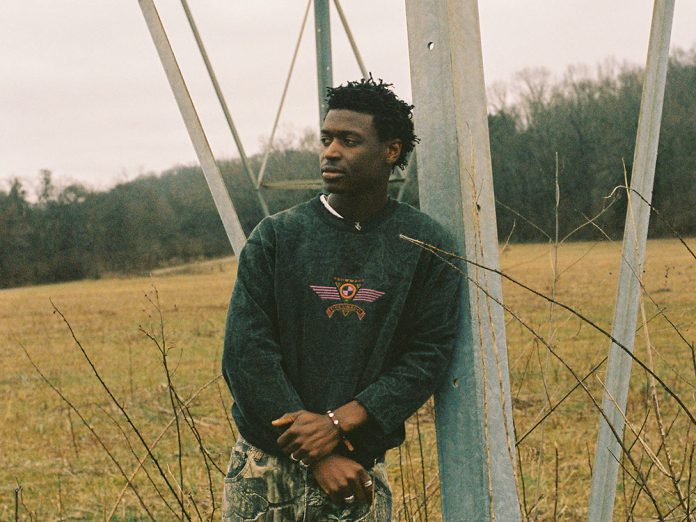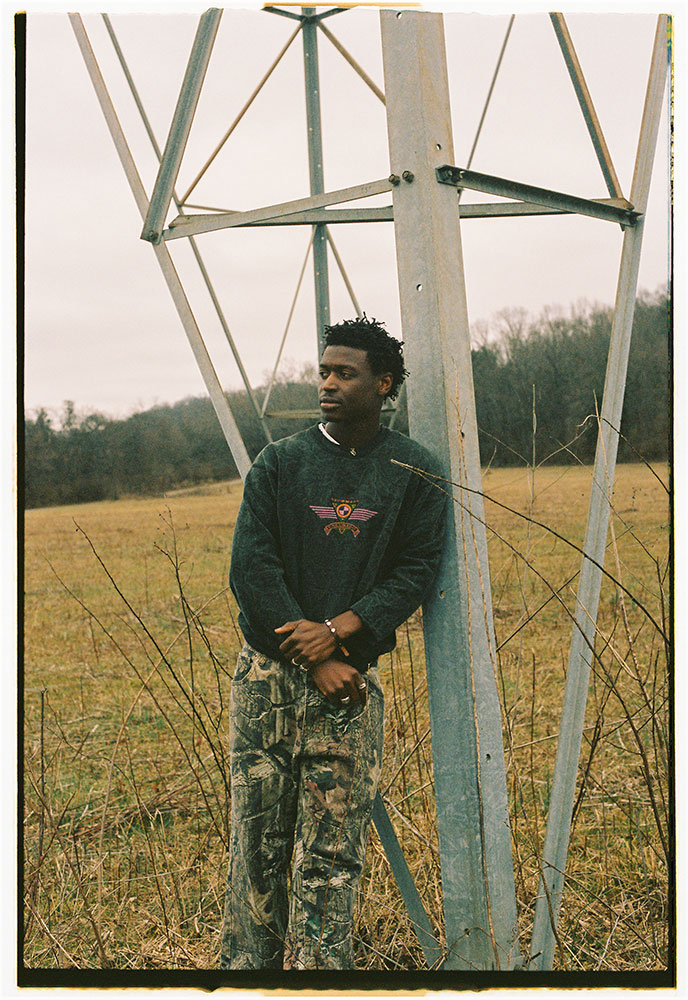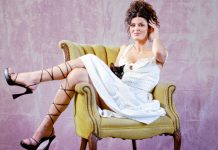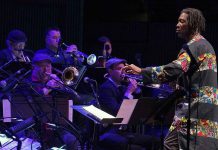
By Bill Forman
Mon Rovîa, whose actual name is Janjay Lowe, chose his stage name to honor his birthplace, Monrovia, Liberia’s capital city, and as an homage to his West African roots.
“I chose the name Mon Rovîa because at first when I was doing music, it was mainly for myself,” he said in a late-August interview. “But then I realized that I wanted to pursue music for other reasons outside of myself, like telling stories about the world and so many things that are going on, especially about my country and its history. Nobody really knows much about Liberia.”
After his first seven years growing up in Liberia, a country ravaged by civil war, he was rescued and raised by Christian missionaries. Over the next decade, his new family lived in Florida, then Montana, then the Bahamas and finally Tennessee.
Since then, the resilient artist’s music, which he describes as “Afro-Appalachian folk,” has earned millions of monthly listeners on streaming services like Spotify and YouTube. But as with many young artists, it was his early TikTok videos that helped catapult him from local venues to sold-out tours.
Armed with a single ukulele, a haunting voice and a gift for poetic lyrics, Mon Rovîa quickly sparked comparisons to well-known artists, including one he’d never heard of.

LIBERIAN VOICE Mon Rovîa has released a series of EPs that draw upon his own journey and the personal issues surrounding immigration. (Photo by Zyne Isom)
“It’s funny, because when I first started off playing on TikTok—which was really just me and the ukulele—people started to sit and listen, and say, ‘Oh, this is like Nick Drake.’ I didn’t even know who Nick Drake was at that time. I had to go back and look at his work and it was like, ‘Oh wow, I can see the similarities.’ Just the simplicity, and then the words and kind of the way he painted a picture.”
There were also differences. Mon Rovîa’s voice has been described as uplifting and ethereal, while Drake’s baritone vocals were deeper and more melancholy. And while Drake’s albums started out with full-on band arrangements and ended up as stark solo recordings, Mon Rovîa has gradually moved in the opposite direction, especially in his live shows.
“In the beginning, it was just me,” he said. “And then it was me and a guitarist. And then from there, the keyboardist and bassist. And now we have a drummer. So yeah, every step of the way, we’ve kind of built out the band a bit more, bringing in different sounds and elevating it each time.”
That’s also the case with the artist’s recordings. While there’s never been a shortage of concept albums, it’s unusual for an artist to divide one into installments over the course of four EPs.
“We wanted a way to introduce ourselves to the people,” said Mon Rovîa of himself and his producer/co-writer Eric Cromartie. “It’s difficult to put out a full album when people don’t know who you are. So we decided to write it in a way where people could digest it in a short form and get to know the artist, who is Mon Rovîa, and a little bit of his tales along the way. One of the best ways to go about that was kind of making it this arc, this hero’s journey.”
To that end, he released a series of EPs that draw upon his own journey and the personal issues surrounding it. Act 1: The Wandering and Act 2: Trials, both released in 2023, were about dealing with inner demons, difficult choices and finding hope while struggling with mental health issues.
Next came 2024’s Act 3: The Dying of Self, which dealt with the search for inner peace and letting go of suffering. The song cycle concludes with 2025’s Act 4: Atonement, which explores themes of forgiveness, reconciling with his past and learning to help others.
“I can’t say everything was planned out, but I do think the chapters were solidified in my mind,” Mon Rovîa said. “But the way I was going to go about it, I think, was brought to light as I stepped into each act.”
Onstage, the group dials back the concepts, but they do give thought to the sequence of the song set which provides a transition to songs that, beneath their smooth surface, convey unflinching lyrics that are sometimes all too real.
“I think there’s a way to break down people’s edges with the soothingness of the instrumentation and the ukulele and the atmosphere,” Mon Rovîa said. “And in that stillness, and in those moments where that stress is dissolved, I think people’s hearts open a bit more and the truth isn’t as painful or daunting to hear.”
Mon Rovîa will perform at Little Saint on Sept. 29. Doors at 6pm. Opening act Khatumu at 7pm, MonRovîa at 8pm.








